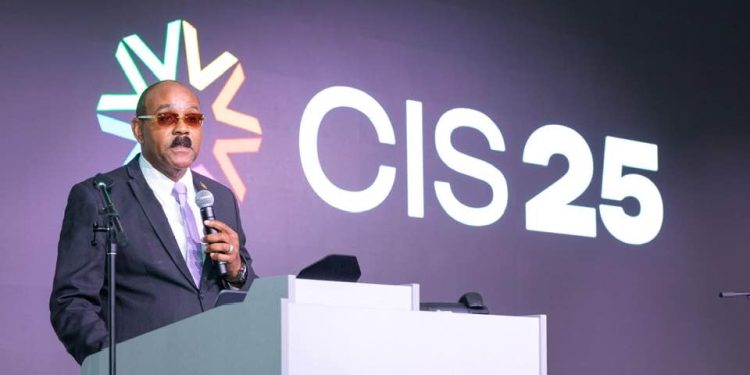Antigua and Barbuda’s Citizenship By Investment programme has been a ‘life-saver’ for the country which has helped it to meet many critical social, infrastructural and developmental needs.
This is the assessment of Prime Minister and Finance Minister, Gaston Browne, speaking as part of a ‘prime ministers’ panel discussion on the value of the CBI programmes to their respective countries.
PM Browne revealed that when he suggested to the United Progressive Party Government back in 2013 to introduce the programme, he did so out of a recognition that the country was tinkering on the brink of collapse and a CBI programme was the only option available to avoid such a disastrous outcome.
“It was a real dire situation at the time and it has been the careful, strategic use of CIP proceeds that helped us to stabilize the country’s economy. We have utilized those funds in healthcare, education, road infrastructure and entrepreneurship. Even in terms of our social programmes, the CBI helped us to fund a number of initiatives, including our HAPI programme in which we provide free homes to the poor and the indigent. Additionally, in beautification, CBI funds have helped in the area of garbage collection extensively,” he noted.
The prime minister recalled that in 2014, two items, salaries, wages and pension emoluments and debt repayment accounted for up to ninety percent of the budget making it difficult for the government to do anything else with the remaining resources.
“We had less that ten percent of the budget available for discretionary spending and it was the CBI programmes that provided the fiscal space to the extent that we could pursue other initiatives. The point that I am making is that it has been a life-saver for the government and people of Antigua and Barbuda. Our international partners may see these programmes as insignificant or corrupt programmes; perhaps, in your eyes but for us they are a lifeline for our people,” PM Browne declared.
He added that the CBI programmes need to be maintained; to be sustained and to continue to be developed so that they can provide benefits to the peoples of the sub-region.



